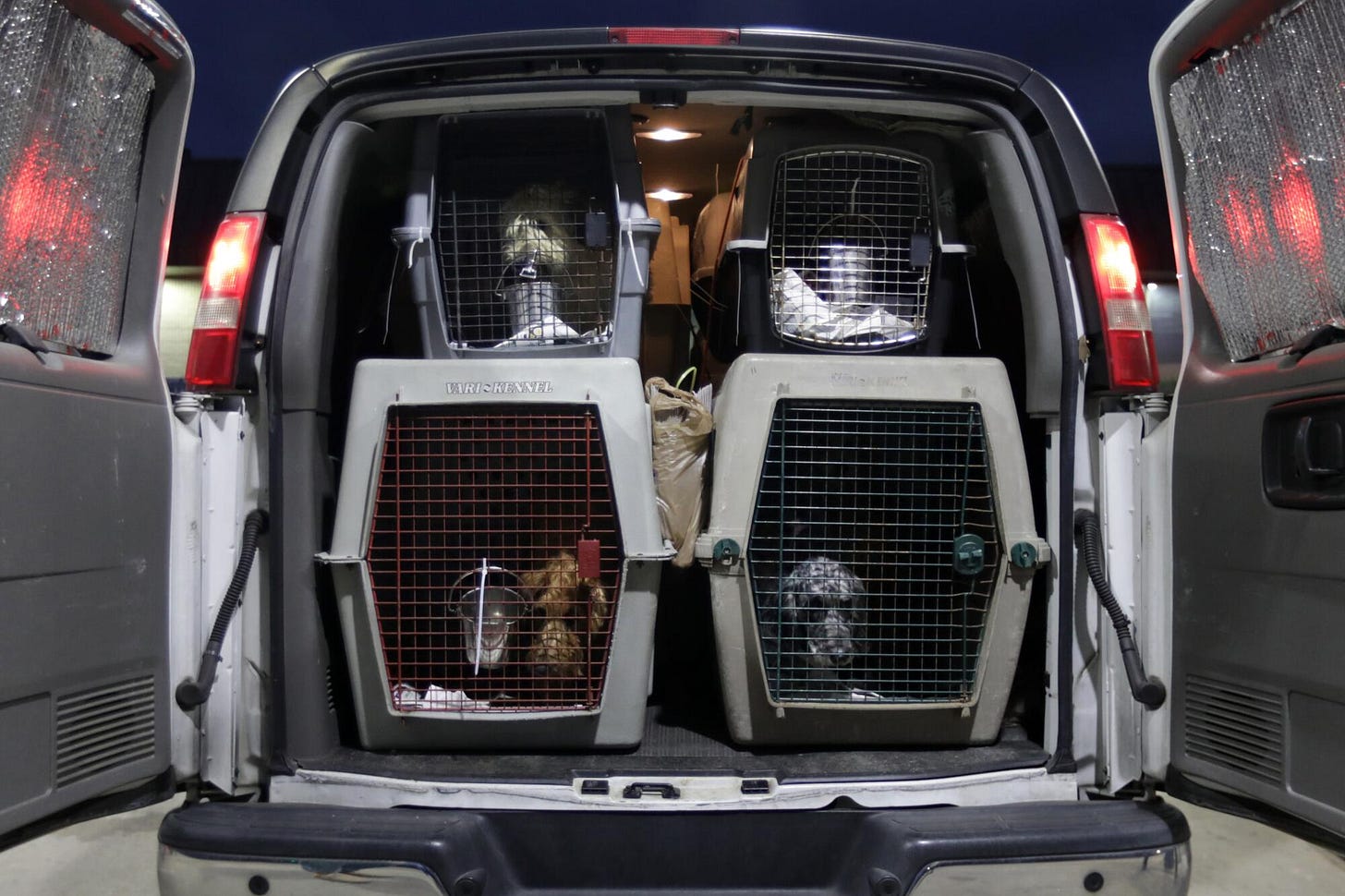Community cats get a reprieve
News and headlines for September 7 - 13, 2024

In other news: California’s “local breeders” are part of a puppy mill scam. The director of arguably the worst pound in the U.S. has been removed. Dogs can remember names for years. Do you have what it takes? Communities are looking for new shelter leadership. Plant-based restaurant chain shutters its doors. Dogs who have done nothing wrong told they can’t play in parks. No Kill gains are being eroded, but help is available.
These are some of the stories making headlines in animal protection:
California’s “local breeders” are part of a puppy mill scam
A year-long Los Angeles Times investigation of California’s underground puppy market reveals how consumers unknowingly support the trade of puppies from puppy mills despite state laws aimed at preventing such practices. Dogs sold as California-bred often come from mass breeders in states like Missouri, Ohio, and Iowa. These dogs are rebranded and sold by people claiming to be local breeders, which often leads to heartache for buyers when puppies get sick or die, resulting in expensive veterinary bills.
Unfortunately, the state destroys veterinary records containing critical details about the puppies’ origins despite laws requiring that they be kept. This leaves buyers in the dark about where their pets came from.
The investigation also exposed some of the key players in this trade, including ex-cons and brokers, some of whom have a history of animal cruelty. It describes horrific conditions in breeding facilities where dogs suffer neglect, disease, and death.
The investigation confirms a prior study in the Journal of Applied Animal Behaviour Science, which found that,
Common to virtually all [Commercial Breeding Enterprises] CBEs are the following: large numbers of dogs;… housing dogs in or near the minimum space permitted by law; housing breeding dogs for their entire reproductive lives — in most cases, years — in their cages or runs; dogs rarely if ever permitted out of their primary enclosures for exercise or play; absence of toys or other forms of enrichment; minimal to no positive human interaction or companionship; and minimal to no health care.
Because of the trauma they experienced at the facilities, former breeding dogs exhibit more fear, nervousness, health problems, compulsive behaviors, house soiling, and sensitivity to touch compared to shelter dogs. In some cases, significantly more. Many of these dogs experience “regular and often persistent fear or anxiety, even after years in their adoptive households.” Not only do one in four breeding dogs have significant health problems, but many of them are psychologically and emotionally shut down, compulsively staring at nothing.
Meanwhile, many puppies die or suffer from long-term health issues after being sold. The investigation uncovered several heart-wrenching stories of people who unknowingly purchased sick puppies. Some of these buyers have sued the sellers, but often, the sellers use aliases and change addresses to avoid legal consequences.
The investigation findings provide one more reason, among many, why adoption and rescue are ethical imperatives — and one more reason why, as previously reported, the call by the Humane Society of the United States for shelters to “partner” with “local breeders” to meet the demand for puppies will lead to increased neglect, abuse, suffering, and death.
The director of arguably the worst pound in the U.S. has been removed
The director of the Riverside County pound in California has been removed and reassigned to another agency after residents filed a lawsuit demanding that she be declared unfit to run the facility. The lawsuit alleged “a shocking, callous, and ongoing failure to follow California law“ by keeping animals “in dirty kennels, under inhumane conditions, subject to being killed in a helter-skelter manner and placed in barrels to be disposed.”
According to petitioners,
“The photographs above were taken by a community member visiting the San Jacinto facility of [Riverside County Department of Animal Services] RCDAS. What she saw was appalling — the dog in the picture on the left had been dead for some period of time and the dog pictured on right was laying on an excrement-covered floor with more excrement on the dog’s body…
“These disturbing photographs of animal cruelty are emblematic of the fundamental failings and pervasive deficiencies, the inertia and inaction, of RCDAS and its Director, [Erin] Gettis. RCDAS under the direction of Gettis is plagued with lack of leadership, mismanagement, budget opacity, disdain for the health and safety of animals in its custody, disinterest in working with the community and rescue organizations to place animals in homes, inertia in moving to adopt no kill policies, and a focus on killing, rather than saving, dogs and cats. This must stop.”
Under Gettis, the Riverside County pound “killed more animals than any other reporting shelter in the United States.”
The County has put her in charge of the county hospital.
Dogs can remember names for years





